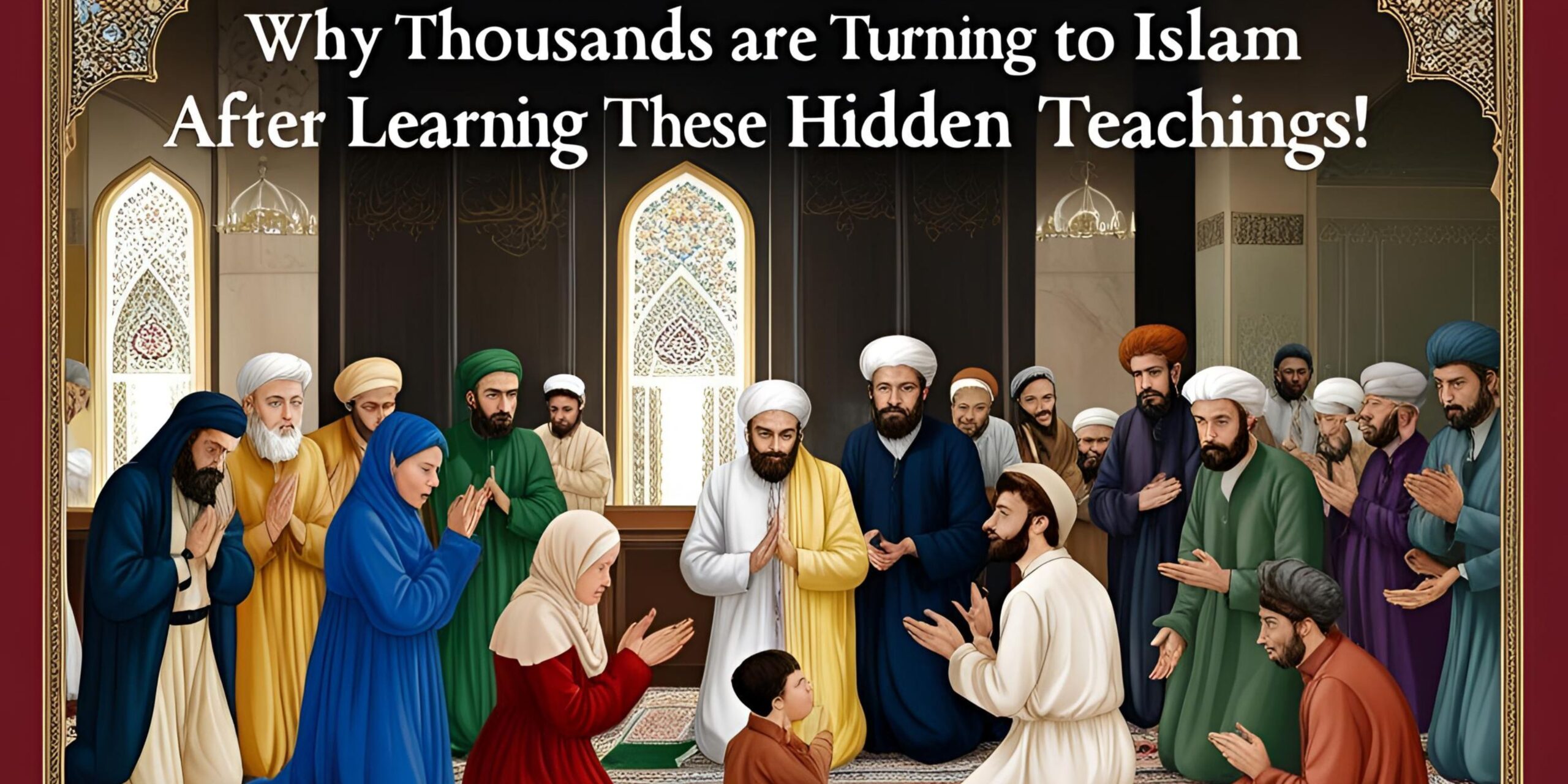Islam is the world’s second-largest religion, embraced by over 1.9 billion people across every continent. For newcomers, its rich tapestry of beliefs, practices, and historical milestones can feel both inspiring and overwhelming. This guide distills the core teachings and faith principles of Islam into a clear, beginner-friendly roadmap. Whether you are exploring Islam out of personal curiosity, academic interest, or spiritual seeking, this article will give you the vocabulary, context, and confidence to understand what Muslims believe, why those beliefs matter, and how they translate into daily life.
Understanding Islamic Beliefs
Definition and Etymology
The Arabic word Islām literally means “submission” or “surrender” to the will of God (Allah in Arabic). A Muslim is “one who submits.” This submission is not passive resignation but an active, whole-hearted commitment to live according to divine guidance.
The Concept of Tawḥīd (Oneness of God)
At the heart of Islamic belief lies Tawḥīd, the absolute oneness of God. Islam categorically rejects any division of God’s essence, attributes, or authority. Key implications include:
- No intermediaries—Muslims pray directly to Allah.
- No images or statues—Divine transcendence is preserved.
- No original sin passed biologically—Each soul is born in a state of fitrah (natural inclination toward good).
Revelation and Prophets
Muslims believe that Allah’s guidance has been periodically revealed through prophets and messengers. Notable figures include:
- Adam – First human and prophet.
- Moses (Mūsā) – Received the Torah.
- Jesus (ʿĪsā) – Received the Injīl (Gospel); performed miracles by Allah’s permission.
- Muḥammad – Final prophet; received the Qur’an, Islam’s ultimate and unaltered scripture.
Each prophet confirmed the message of Tawḥīd, corrected deviations, and prepared humanity for the next phase of guidance.
Key Components of Islamic Faith
The Six Articles of Faith
Classical scholars summarize essential Islamic belief in six articles:
- Belief in Allah – One, unique, eternal, all-powerful.
- Belief in Angels – Created from light; carry out divine commands.
- Belief in Revealed Books – Original scriptures, only the Qur’an remains unaltered.
- Belief in Prophets – All prophets are respected; Muḥammad is the final one.
- Belief in the Day of Judgment – Resurrection, accountability, Heaven and Hell.
- Belief in Divine Decree (Qadar) – Allah’s omniscience and omnipotence encompass all events.
The Five Pillars of Islam
While the six articles define what Muslims believe, the Five Pillars describe how belief is practiced:
| Pillar | Arabic Term | Core Practice | Spiritual Significance |
|---|---|---|---|
| Testimony of Faith | Shahāda | Recite: “There is no god but Allah, Muḥammad is His messenger.” | Entry point into Islam; daily reaffirmation |
| Prayer | Ṣalāh | Five daily prayers facing Mecca | Direct connection with Allah; discipline |
| Charity | Zakāh | 2.5% of qualifying assets to the needy | Social justice; purification of wealth |
| Fasting | Ṣawm | Dawn-to-sunset fast in Ramadan | Self-restraint; empathy for the poor |
| Pilgrimage | Ḥajj | Journey to Mecca once in a lifetime if able | Unity of humanity; spiritual rebirth |
The Qur’an and Sunnah
The Qur’an is regarded as the literal word of Allah, revealed in Arabic over 23 years. Recitation of the Qur’an in its original language is considered an act of worship. The Sunnah encompasses the sayings, actions, and approvals of Prophet Muḥammad, preserved in ḥadīth literature. Together, these sources form Shariah (Islamic law), which guides both personal devotion and communal ethics.
Core Moral Teachings
- Justice (ʿAdl) – Fair treatment regardless of status, race, or religion.
- Compassion (Raḥmah) – Mercy is Allah’s chief attribute; believers emulate it.
- Trustworthiness (Amānah) – Honoring contracts and social responsibilities.
- Humility (Tawāḍuʿ) – Recognizing human dependence on divine grace.
Benefits and Importance
Spiritual Well-being
Regular prayer, fasting, and recitation cultivate taqwa (God-consciousness), leading to inner peace even amid worldly turbulence. Muslims describe this as “tranquility of the soul” (ṭumaʾīnah).
Social Cohesion
Zakāh reduces economic inequality, while communal prayers and shared festivals foster solidarity. The annual Eid prayers, for example, can gather hundreds of thousands in a single city.
Moral Compass in a Complex World
In an era of rapid technological and social change, Islamic teachings provide timeless principles that adapt without losing ethical clarity. For instance, Islamic finance forbids exploitative interest (ribā), promoting risk-sharing and asset-backed transactions.
Personal Identity and Purpose
Understanding why one exists—to worship Allah—transforms everyday actions into opportunities for spiritual elevation. A student studying biology may see it as discovering the signs (āyāt) of the Creator in the natural world.
Practical Applications
How to Embrace or Deepen Your Understanding
Begin with the Shahāda
Seek a trusted mosque or Islamic center. Pronounce the testimony sincerely before two witnesses. Receive a certificate and local support network. Establish Prayer
Learn the wudūʾ (ritual ablution). Use mobile apps for prayer times and direction. Start with one prayer daily, then gradually add the rest. Read a Reliable Translation of the Qur’an
Recommended beginner translations: Saheeh International, Abdel Haleem. Pair reading with tafsīr (commentary) such as Tafsir Ibn Kathir (Abridged). Engage in Community Life
Attend Friday jumuʿah sermon. Participate in study circles (ḥalaqāt). Volunteer for charity drives during Ramadan.
Everyday Scenarios: Living the Teachings
Scenario 1: Ethical Shopping
A Muslim learns that a clothing brand uses sweatshops. Guided by justice and trustworthiness, they switch to fair-trade companies and may even write polite feedback urging ethical reform.
Scenario 2: Workplace Integrity
When asked to falsify data, the believer recalls the Qur’anic verse “Do not mix truth with falsehood” (2:42) and respectfully refuses, explaining their commitment to honesty.
Scenario 3: Digital Etiquette
Before posting on social media, a Muslim applies the Prophet’s teaching: “Whoever believes in Allah and the Last Day should speak good or remain silent.” This curbs gossip and cyber-bullying.
Frequently Asked Questions
What is the difference between Islam and Muslim?
Islam is the religion; Muslim is the adherent. Think of “Islam” as the path and “Muslim” as the traveler walking it. One says, “Islam teaches…” while “a Muslim believes…”.
Do Muslims worship the same God as Jews and Christians?
Muslims believe Allah is the same one Creator worshipped by Abraham, Moses, and Jesus. However, theological concepts differ: Islam emphasizes Tawḥīd without Trinity or incarnation. Dialogue often focuses on shared ethical values and monotheistic heritage.
Is the Qur’an only in Arabic, and do I need to learn Arabic?
The Qur’an’s canonical form is Arabic. Yet translations are widely used for understanding. Learning Arabic deepens appreciation—especially during prayer—but is not mandatory for beginners. Many Muslims start with translations and gradually pick up common Arabic phrases.
How do Islamic law (Shariah) and local laws interact?
Shariah includes personal worship, ethics, and—historically—civil and penal codes. In Muslim-majority countries, aspects of Shariah may be codified. In non-Muslim countries, Muslims follow local laws while observing personal Shariah obligations like prayer and charity, provided there is no conflict.
Why do Muslim women wear hijab, and is it compulsory?
Hijab refers to modest dress and behavior for both genders. For women, it commonly includes covering hair and body. Classical scholars deem it wājib (religiously obligatory) based on Qur’an 24:31 and 33:59. Motivations include obedience to God, identity expression, and empowerment through modesty. Practices vary culturally; some women choose not to wear it, and legal enforcement differs by country.
What happens after death in Islam?
After burial, the soul experiences Barzakh, an intermediate state where it receives blessings or trials based on its deeds. On the Day of Judgment, bodies are resurrected, records are examined, and individuals cross the ṣirāṭ bridge. Final destinations are:
- Jannah (Paradise) – eternal bliss with God’s pleasure.
- Jahannam (Hell) – purification and justice for severe wrongdoing.
Divine mercy plays a decisive role: “My mercy encompasses all things” (Qur’an 7:156).
Are there sects in Islam, and how significant are the differences?
The two largest groups are Sunnis (~85–90%) and Sh
























Post Comment